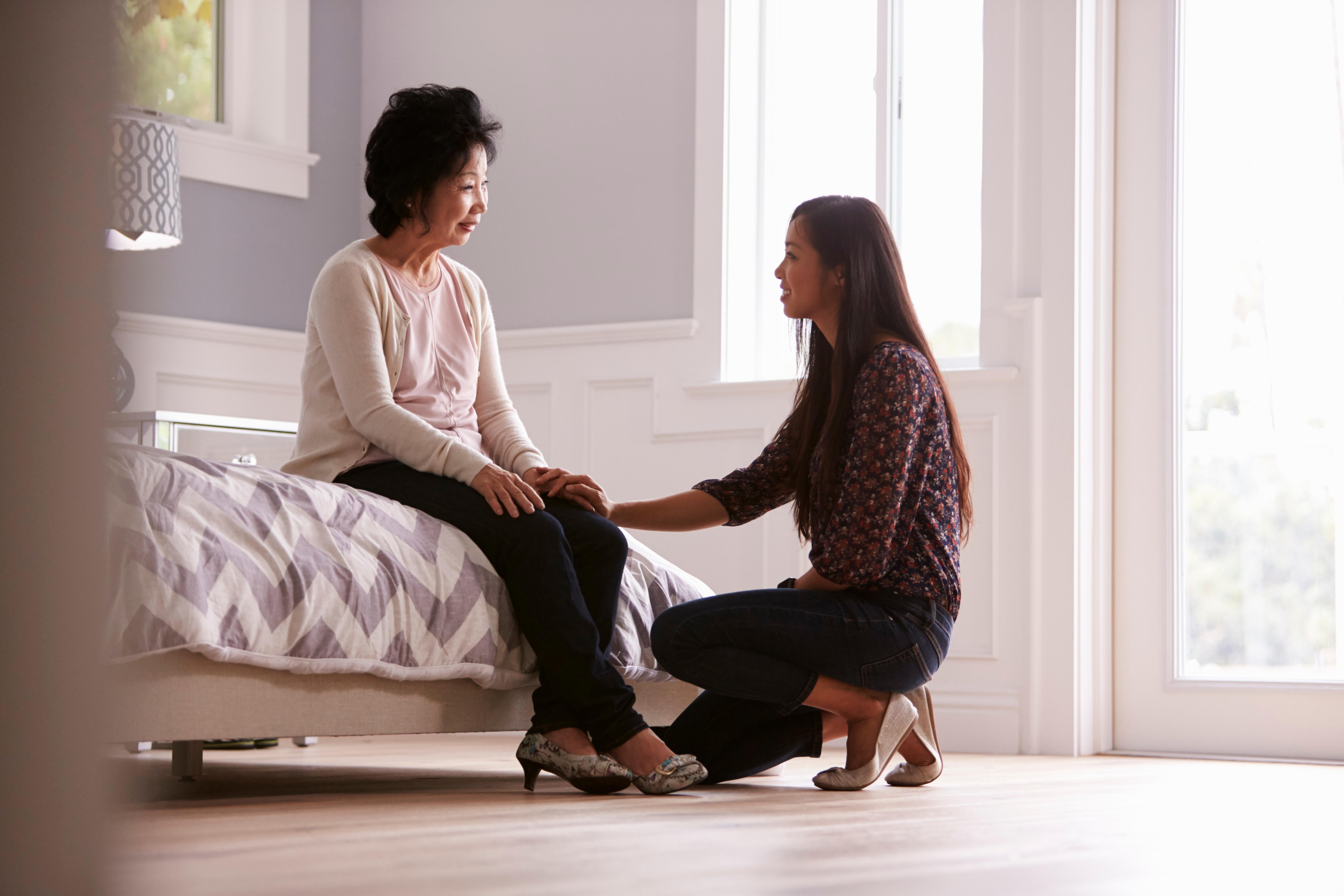Mental Health Awareness Week: How the pandemic has helped people open up about their struggles
Over the last year more people have begun talking about mental health, and that’s a very good thing, says Katie Wright.

Your support helps us to tell the story
From reproductive rights to climate change to Big Tech, The Independent is on the ground when the story is developing. Whether it's investigating the financials of Elon Musk's pro-Trump PAC or producing our latest documentary, 'The A Word', which shines a light on the American women fighting for reproductive rights, we know how important it is to parse out the facts from the messaging.
At such a critical moment in US history, we need reporters on the ground. Your donation allows us to keep sending journalists to speak to both sides of the story.
The Independent is trusted by Americans across the entire political spectrum. And unlike many other quality news outlets, we choose not to lock Americans out of our reporting and analysis with paywalls. We believe quality journalism should be available to everyone, paid for by those who can afford it.
Your support makes all the difference.There’s no doubt the pandemic has caused a great deal of suffering for a great many people. In November last year, Mind reported that more people have experienced a mental health crisis during the pandemic than ever previously recorded.
Yet there is one silver lining to this colossal cloud. After moving in the right direction over the last few years, it feels as though the taboo around talking about mental health is finally breaking, with more people feeling able to speak about their struggles without shame or embarrassment. And Mental Health Awareness Week (May 10-16) is a great time to recognise that.
“The pandemic has given people a forum to be able to discuss things that formerly I think they would have had much more difficulty discussing,” says Dr Robin Hart, psychologist and co-founder of mental health app Companion. “It has de-shamed it and allowed people to own that they were having difficulties.”
Celine Erorh, assistant psychologist and founder of social enterprise Celutions, believes life in lockdown has “forced people to acknowledge that maybe their feelings have been different, or maybe their moods have been different; things they would otherwise maybe put to the back of their minds.”
While previously a ‘keep calm and carry on’ mantra could often prevail, now many are recognising they can’t just continue silently when their lives have been so radically altered.
“It would be very odd not to have some difficulties with coping with [a pandemic],” says Hart. “And of course, there are around 130,000 families in the UK who are coping with it in a very different way, because they’ve lost somebody.”
Some of the most common mental health issues Erorh has seen crop up over the last year include “anxiety, depression and higher stress levels.”
“A lot of people are now working from home, which for some people might not be the most ideal situation,” she continues. “And not having those face to face interactions with people as often as you would, it can lead to low mood.”
Hart says isolation has been “really problematic” and that working from home often means working longer hours, leading to “an overlap of stress, anxiety, and low mood.”
For some people, existing issues have been exacerbated by Covid restrictions, he says: “This has been a situation which has really concentrated and amplified underlying problems that were probably just about manageable before.
“If we’d been in it for two or three months it would have been different, but we’ve basically been in it for over a year. And that’s a very long time.”
However, with more discussion around mental health taking place, both in person and online, more sources of support are being shared. “Because more people are sharing their experiences, they often do share where you can get help. So it then leads to people getting help, which is a really good thing,” says Erorh.
But what if you’ve been struggling mentally and you haven’t been able to open up to anyone? “First of all, it’s not too late,” says Hart. “If you had a really difficult time and you didn’t talk to somebody about it, it’s not too late.”
He suggests starting with a close friend or family member and asking how they have coped. Alternatively, you may be able to access support via your employer, so ask your HR department, or speak to your GP about mental health services in your area.
“First things first, always talk to somebody that you feel like you can trust,” says Erorh. “Secondly, asking the other person about their feelings can give you that little boost to actually share your own.”
Similarly, if you know someone who you think may be suffering in silence, you can help normalise and destigmatise the issue by describing your own pandemic experience. “It works both ways. Speaking about your own feelings and then asking about theirs – that can help,” says Erorh.
The hope is that people will continue to feel increasingly able to share how they’re feeling, but there’s no need to rush or pressure people to open up. As restrictions ease and life returns to something resembling normal, the ‘keep calm and carry on’ approach isn’t so likely to return either, fortunately.
“This will have been a big shift for the recognition of mental health issues, because it’s normalised it,” says Hart of the pandemic. “It’s moved [the discussion] on 15 years.”
And that momentum will continue long after lockdown has lifted, Erorh hopes: “You can’t go backwards with this kind of thing – you can only progress. I don’t think the conversation will stop anytime soon.”